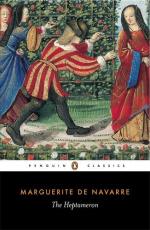Throughout the negotiations for her brother’s release Margaret always maintained the dignity and reserve fitting to her sex and situation. Writing to Francis on this subject she says: “The Viceroy (Lannoy) has sent me word that he is of opinion I should go and see the Emperor, but I have told him through M. de Senlis that I have not yet stirred from my lodging without being asked, and that whenever it pleases the Emperor to see me I shall be found there.” (2)
1 Lettres de Marguerite, &c., p. 197.
2 Captivite de Francois Ier, p. 358.
Margaret was repeatedly admitted to the Imperial council to discuss the conditions of her brother’s ransom. She showed as much ability as loftiness of mind on these occasions, and several times won Charles V. himself and the sternest of his Ministers to her opinion. (1)
1 Brantome states that the Emperor was greatly impressed and astonished by her plain speaking. She reproached him for treating Francis so harshly, declaring that this course would not enable him to attain his ends. “For although he (the King) might die from the effects of this rigorous treatment, his death would not remain unpunished, as he had children who would some day become men and wreak signal vengeance.” “These words,” adds Brantome, “spoken so bravely and in such hot anger, gave the Emperor occasion for thought, insomuch that he moderated himself and visited the King and made him many fine promises, which he did not keep, however.” With the Ministers Margaret was even more outspoken; but we are told that she turned her oratorical powers “to such good purpose that she rendered herself agreeable rather than odious or unpleasant; the more readily as she was also good-looking, a widow, and in the flower of her age.”—OEuvres de Brantome, 8vo, vol. v. (Les Dames illustres).
She highly favoured the proposed marriage between Francis and his rival’s sister, Eleanor of Austria, detecting in this alliance the most certain means of a speedy release. Eleanor, born at Louvain in 1498, had in 1519 married Emanuel, King of Portugal, who died two years afterwards. Since then she had been promised to the Constable de Bourbon, but the Emperor did not hesitate to sacrifice the latter to his own interests.
He himself, being fascinated by Margaret’s grace and wit, thought of marrying her, and had a letter sent to Louise of Savoy, plainly setting forth the proposal. In this missive, referring to the Constable de Bourbon, Charles remarked that “there were good matches in France in plenty for him; for instance, Madame Renee, (1) with whom he might very well content himself.” (2) These words have led to the belief that there had been some question of a marriage between Margaret and the Constable; however, there is no mention of any such alliance in the diplomatic documents exchanged between France and Spain on the subject of the King’s release. These documents comprise an undertaking to restore the Constable his estates, and even to arrange a match for him in France, (3) but Margaret is never mentioned. She herself, in the numerous letters handed down to us, does not once refer to the famous exile, and the intrigue described by certain historians and romancers evidently rests upon no solid foundation. (4)




